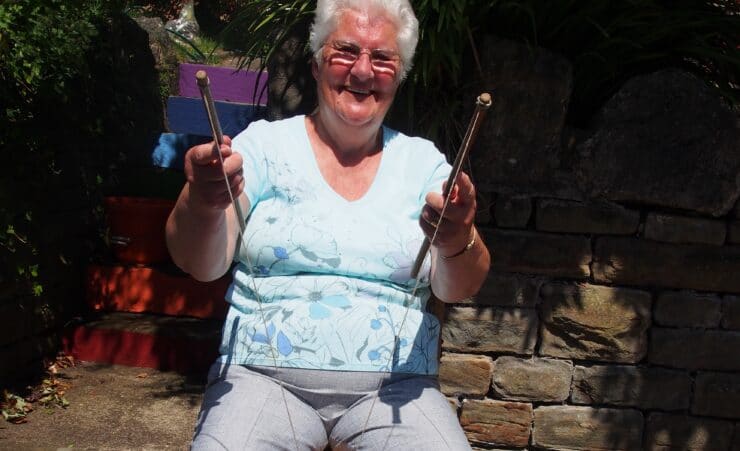
Full Cost Recovery – A recipe for success
I’m a huge fan of the Open and Trusting initiative as it aims to narrow the gaps between the needs of fund-seekers and funders. Having been involved in grant-making and grant-seeking in one form or another since the 1980s (I know, how is that possible when I look so young…!) I can recognise both the hurdles and the advantages of bringing the two “sides” closer together. But we’re all striving for the same things (or should be) and we are making progress in that.
For both fund-seekers and fund-givers, being able to explain why you do what you do is really important as the greater the understanding the more that barriers reduce. The recent push by the Open and Trusting initiative to make unrestricted funding more prevalent has been a really important step forward, whilst recognising that for some funders it isn’t always possible. My own organisation is a case in point. We fund specific priorities (e.g. Asylum Seeker/Refugee support) so cannot award unrestricted funding to organisations which also do other things, as those funds could then be used to support other work – but we will give unrestricted grants wherever possible.
But if it’s not possible to give unrestricted funding, what else can we do as funders to help the groups as best we can? Open & Trusting promotes several approaches (e.g. make processes simpler and clearer, be flexible) but there is another one which we all could all support and which doesn’t fall foul of any legal restriction. That is Full Cost Recovery (FCR).
FCR recognises the true cost of delivering a project; that as well as the core face-to-face delivery costs there are also costs in making the project happen – time to make and manage the funding application/grant award; time to set the project up; time to monitor and evaluate it; the cost of heating, lighting, cleaning of a venue; the proportion of costs needed for bookkeeping and audit; etc. And typically, the worst offenders at not including these are Small Grants. Small Grants which are mostly aimed at small organisations – the very organisations who are least likely to have other resources or reserves to call on for their overheads and administration.
I wear another hat as a volunteer fundraiser for a small organisation. In this role it’s not unusual for me to help with 30+ grant applications in a year, many of them for small grants as that’s often the only funds available to small groups. Some funders specify that they do not support full cost recovery (why not?); others don’t support FCR in practice, but don’t say so (also problematic). And for those where it’s not clear either way please do not comfort yourself by thinking that the applicant will assume you do and include those costs – they won’t. They will be afraid that to do so will make the request more likely to be turned down, or that it will end up looking too “expensive”. So, by creating a system whereby smaller organisations have no option but to dig into their reserves – if they have any – and/or cover all of the project facilitation voluntarily (as most then do) you are undermining those very organisations which are most fragile and which are, coincidently, often minority led or focused and already dependent on staff who work full-time hours on part-time pay. And don’t get me started on when the application form then has a question about the sustainability of the organisation or the project!
You wouldn’t give your child a bicycle without a saddle and then somehow expect them to make full use of it, so why give an organisation a proportion of what they actually need. I know that funders have limited budgets and may decide it’s better to give 30 groups something rather than to give 20 groups the true cost of a project – but is it? I’ve direct experience, more than once, where I’ve made a meticulously costed application for, say, £5,000 and been awarded £2,000. Do we decline the offer and then be worried we’ve annoyed the funder and ruined the possibility of any future funding; or do we express eternal gratitude and spend an inordinate amount of time trying to create something valuable with the funds awarded (and for which we will often be expected to provide a report on the project originally proposed)? Shouldn’t we as funders always strive to fund for success in the truest sense?
So, what to do? I can see no good reason why a full cost recovery model can’t be the norm (especially if unrestricted funding is not possible), and certainly why that approach would be specifically excluded. A recent question on the ACF Funder Network sought funders’ approaches to implementing FCR and while these varied, that wasn’t a problem. You might choose to say that requests can include up to 10 or 15% for related overheads, for example, or that there is no fixed percentage but that any sum should be explained/justified. I have even seen a funder state that X% for related core costs must be included. We don’t all have to take the same approach but the most important thing – and going back to the value of explanation and clarity – is to be clear on what your approach is and that applicants know (hopefully) that FCR is fine to request and possibly even encouraged? Let’s aim to give groups, especially smaller ones, what they need to be really good rather than just the bare minimum or direct delivery costs only. And less of the “sustainability” questions please – unless you’re going to help them with their fundraising… 😉


